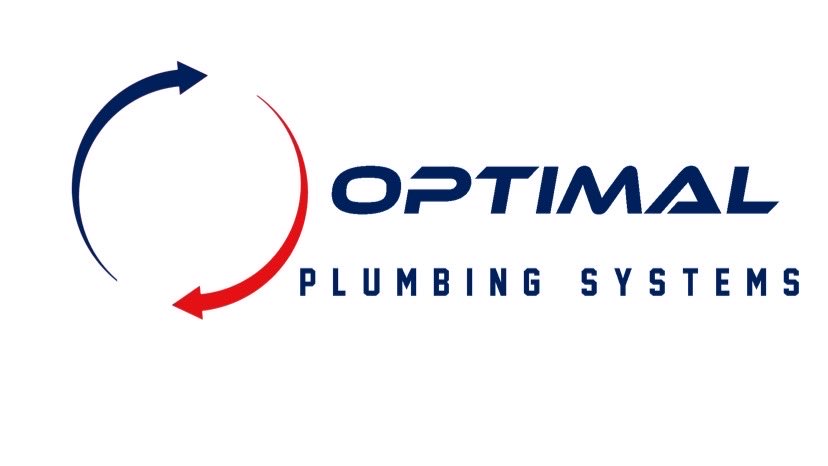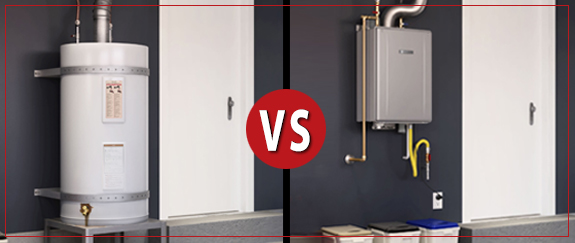Are you a first time shopper for water heaters and don’t know where to begin? Or are you in the market for a new water heater but are unsure if you should get a tankless or conventional water heater? Well! You’ve come to the right place as finding the right water heater for your home or business can be a daunting task.
But before we dive into the kinds of water heaters available and their differences, I’ll first share what a water heater is for our first-time readers.
A Water Heater? What Even Is That?
A water heater is just that: it heats the water in your home. All the hot water that comes through the faucets in your home, apartment or building comes from either a huge tank (a conventional water heater) or a box setup either inside or outside ( ‘tankless’ water heater).
But now you may be asking, “what are the differences between the two water heaters? And how do I know which one works best for me?”
As the content writer for Monkey Wrench Plumbing, I’m able to speak with some of our technicians, who are water heater experts, and have gathered a ton of information that’ll lead you in the right direction when selecting the right water heater for you.
In this article, I will explain how each water heater works and the differences between a conventional and tankless water heater. By the end of this article you will know which option is best for your home and your needs.
What is a conventional water heater?
Conventional water heaters are traditional tank-style water heaters that are found in most homes and are used to heat the water used in your home. It’s typically a large cylinder that holds between 30-to-100 gallons of water, with the most common size holding 50 gallons of water.
With conventional water heaters, once the hot water runs out from the tank, you will have to wait until the tank refills again in order to have access to hot water. Conventional water heaters are mostly found in the garage, closet, or outdoors in a shed and have a life expectancy of around 10 years. Some of the more popular brands include Bradford White, AO Smith and Rheem.
What is a tankless water heater?
Well, a tankless water heater is a device that heats your water without the bulkiness of a tank. Unlike a conventional water heater that is storing the water inside the tank, a tankless has nowhere to store it and heats the water almost instantly as it moves through the heat exchanger, ultimately providing with you an endless supply of hot water.
Some of the popular brands of tankless water heaters include Noritz, Navien, and Takagi.
Benefits and Drawbacks Of Conventional Water Heaters
In the last section, I briefly walked you through what conventional and tankless water heaters are. But now you must be asking yourself, well one’s got to be better than the other right? The answer is: it depends on your needs.
Benefits
- Cost
Conventional water heaters are cheaper than tankless water heaters upfront. According to our subject matter expert, conventional water heaters can range anywhere from $1900 to $3300. Additionally, if the unit breaks or if you need to replace it, repairs and replacements can also be cheaper initially. - User Friendly
Conventional water heaters can be more D-I-Y as it has limited parts so it’s easier to do repairs or replacements. This style of water heater has also been around for years, so there’s tons of resources on how to perform repairs or replacements. Lastly, since it’s not such a complex machine and more easily accessible, you don’t have to have extensive knowledge on how it works. While they are D-I-Y friendly, we still recommend you consulting your local plumbers before doing any repairs or replacements. - MaintenanceWith conventional water heaters, water users have more leniency when it comes to maintenance. While maintenance is still needed for a conventional water heater, you can most likely get away with not doing maintenance for over a year without running into any problems.
Drawbacks
- Space NeededWith conventional water heaters, they’re big and bulky which certainly takes up space in smaller homes. So if you’re tight on space, you certainly want to consider if you have enough room for a conventional water heater. Most conventional water heaters are found either in the closet, laundry room, garage, or shed in the backyard.
- Time Needed to Fill TankWith the conventional water heater, water users also run out of hot water a lot faster. Our subject matter expert says that with a conventional water heater, if your tank runs out of hot water, you’ll need to wait for that hot water to replenish, which can take over an hour.
- Shorter Warranty TimeframesTraditional water heaters tend to break down faster than a tankless water heater. Most conventional water heaters have a life expectancy of around 10 years with most manufacturers offering up to 6 year warranties.
- Fewer RebatesAdditionally, there are usually no rebates (or money back) from using a conventional water heater. So if you were looking to possibly cash in on having a conventional water heater, look away.
Benefits and Drawbacks Of Tankless Water Heaters
Benefits
- Space NeededOne of the biggest pros of having a tankless water heater is that it’s much smaller than a conventional heater and can help open up a space if you need it.
- Life ExpectancyA tankless water heater is going to last twice as long as a conventional water heater with the proper maintenance. If installed properly and taken care of, a tankless unit can last anywhere between 20-to-25 years.
- Gas CostsAs a tankless water heater owner, you will not be spending nearly as much on gas. The reasoning behind this is that it’s only heating water as you need it whereas a conventional will constantly be heating water that’s in that tank for whenever you do need it.
- RebatesIf you have a conventional water heater and are looking to go tankless, there are rebates in Southern California for qualifying tankless water heater models including federal tax credit.
Drawbacks
- CostTankless water heaters have a higher upfront cost compared to conventional water heaters. While conventional water heaters can cost $1900-$3300, tankless water heaters can cost anywhere from $4800-$7500 including installation. While the upfront cost of a tankless water heater is higher, the warranties and life expectancy of a tankless water can actually save you money in the long run.
- Larger HomesWhile most tankless water heaters have no problem keeping up with hot water demands, the larger your home is, the larger the demand. If you live in a large home or business, you may need to install more than one tankless water heater to make sure you’ll always have endless hot water.
- Yearly MaintenanceWith the tankless unit, yearly maintenance is highly recommended for homes that have hard water. While yearly maintenance is recommended to keep a tankless water heater running smoothly, you can have a trained tankless specialist perform your cleaning or even do it yourself.
- Hard Water IssuesLastly, hard water is not a fan of the tankless water heater, so if you don’t have water treatment installed on your tankless, it can very likely cause early breakdowns or a leak. Because water is heated up through the heat exchanger, hard water will create scale build up inside of your tankless water heater, which can cause your tankless water heater to work harder to heat up your hot water and shorten the lifespan of your tankless water heater.
Choosing the water heater that is best for you
There you have it! Let’s recap! In this article, I shared with you what conventional and tankless water heaters are, along with their benefits and drawbacks. I even dropped what their key differences are to help you along with your decision on which is the better option for you and your home or business. Picking out a water heater for your home or business can definitely be a daunting task but myself and the subject matter experts here, aim to put your mind at ease, answering all the questions that you may have.
We here at Optimal Plumbing Solutions always recommend that you call your local plumber to see which water heater is the best fit for you as water heaters should be bought based on your specific needs. You never want to try to install a water heater on your own unless you are an experienced plumber because we want you to get the best and most out of your tankless unit.
If you’re looking for more information on tankless units and the benefits of having one, check out the links below!
Tankless Water Heaters: The Complete Beginner’s Guide
Six Benefits of a Tankless Water Heater
Two Types of Tankless Water Heater Maintenance
Or if you have any questions you can always reach us here at Optimal Plumbing Solutoions and we’d be happy to assist you.

